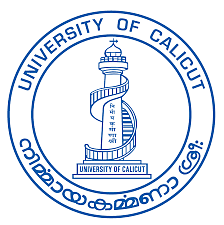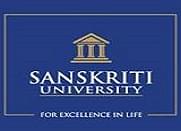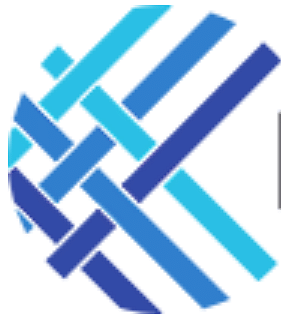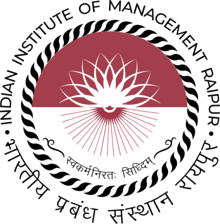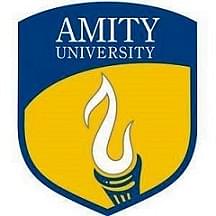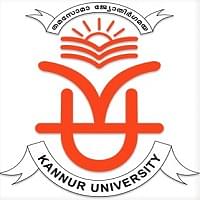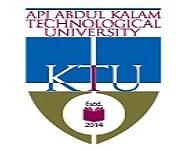Introduction about MPT
MPT (Master of Physiotherapy) from best affordable college in India , which is a postgraduate degree program designed to provide advanced
education and training in the field of physiotherapy. Physiotherapy, also known
as physical therapy, focuses on helping individuals restore and maintain
optimal physical function, mobility, and quality of life through therapeutic
interventions, exercises, and manual techniques.
The Master of Physiotherapy program builds upon the foundational
knowledge and skills acquired during undergraduate studies in physiotherapy or
a related field. It offers specialized training in areas such as
musculoskeletal physiotherapy, neurological physiotherapy, cardiopulmonary
physiotherapy, sports physiotherapy, pediatric physiotherapy, or geriatric
physiotherapy.
Here's an introduction to the Master of Physiotherapy program:
·
Advanced Education and Specialization: The MPT
program provides advanced education and specialization in various areas of
physiotherapy practice. Students deepen their understanding of anatomy,
physiology, biomechanics, and pathology related to specific patient populations
and conditions.
·
Clinical Skills Development: Students
develop advanced clinical skills in assessment, diagnosis, treatment planning,
and intervention delivery for a wide range of musculoskeletal, neurological,
cardiovascular, respiratory, and pediatric conditions. They learn to use
evidence-based practices and clinical reasoning to provide effective and
holistic care to patients.
·
Research and Evidence-Based Practice: The MPT
program emphasizes research literacy and evidence-based practice, equipping
students with the knowledge and skills to critically evaluate research
literature, design research studies, and apply research findings to clinical
practice. Students may conduct research projects or participate in clinical
trials as part of their studies.
·
Interprofessional Collaboration: Students
learn to work collaboratively with other healthcare professionals, such as
physicians, nurses, occupational therapists, speech therapists, and
chiropractors, to provide comprehensive care and promote interdisciplinary
teamwork in healthcare settings.
·
Clinical Placements and Internships: The MPT
program typically includes clinical placements or internships in hospitals,
rehabilitation centers, outpatient clinics, sports medicine facilities,
community health centers, or private practices. These placements provide
hands-on experience and supervised practice in real-world clinical settings
under the guidance of experienced physiotherapists.
·
Professional Development and Leadership: The MPT
program fosters professional development and leadership skills, preparing
graduates to assume roles as clinical specialists, educators, researchers, or
healthcare administrators in physiotherapy practice, academia, or healthcare
management.
·
Licensure and Certification: Upon
completion of the MPT program, graduates may be eligible to apply for licensure
or registration as physiotherapists in their respective jurisdictions. They may
also pursue additional certifications or credentials in specialized areas of
physiotherapy practice through professional organizations or regulatory bodies.
·
Overall, the Master of Physiotherapy program equips
graduates with the advanced knowledge, skills, and clinical expertise needed to
provide high-quality care to patients across the lifespan and contribute to
advancements in the field of physiotherapy through research, education, and
leadership.
What is eligibilty process to take admission for
MPT?
The eligibility process to take admission at top Master of Physiotherapy (MPT) university program can vary depending on the
institution offering the course and the country in which it is pursued.
However, here are some common eligibility criteria and steps involved in the
admission process for MPT programs:
Ø Educational
Qualifications:
Ø Completion
of a Bachelor's degree in Physiotherapy (BPT/BPTh) or an equivalent
undergraduate degree in physiotherapy from a recognized institution.
Ø Some
institutions may have specific academic requirements, such as a minimum GPA
(grade point average) or completion of prerequisite courses in anatomy,
physiology, biomechanics, and pathology.
Ø Professional
Registration/Licensure:
Ø In some
countries, applicants may be required to hold a valid license or registration
as a physiotherapist to be eligible for admission to an MPT program. This
ensures that applicants have met the regulatory requirements for practice in
the field.
Ø Language
Proficiency:
Ø Proficiency
in the language of instruction may be required, especially if the program is
taught in a language other than the applicant's native language.
Ø Some
institutions may require applicants to submit standardized test scores, such as
the TOEFL (Test of English as a Foreign Language) or IELTS (International
English Language Testing System), to demonstrate English language proficiency
for non-native speakers.
Ø Entrance Exams:
Ø Some
institutions may require applicants to take entrance exams or standardized
tests as part of the admissions process. These exams may assess academic
aptitude, subject knowledge, or professional competency in physiotherapy.
Ø Work Experience:
Ø While not
always mandatory, some MPT programs may prefer applicants with relevant work
experience in the field of physiotherapy. Work experience may demonstrate
practical skills, clinical competence, and commitment to the profession.
Ø Letters of
Recommendation:
Ø Some
institutions may require applicants to submit letters of recommendation from
faculty members, clinical supervisors, or professional colleagues who can
attest to their academic abilities, clinical skills, and suitability for
advanced study in physiotherapy.
Ø Personal Statement
or Essay:
Ø Applicants
may be required to submit a personal statement or essay outlining their reasons
for pursuing a Master's degree in physiotherapy, career goals, relevant
experiences or achievements, and areas of interest within the field.
Ø Interviews:
Ø In some
cases, applicants may be required to participate in an interview as part of the
admissions process. This interview may assess the applicant's motivation,
communication skills, professional demeanor, and readiness for advanced study
in physiotherapy.
Ø Application
Submission:
Ø Applicants
must complete and submit the application form provided by the institution,
along with all required documents, such as academic transcripts, standardized
test scores, letters of recommendation, personal statement, and any other
requested materials.
Ø Admission Decision:
Ø After
reviewing the applications, the institution's admissions committee will make a
decision regarding admission. Successful applicants will receive an offer of
admission, while others may be placed on a waitlist or denied admission.
Ø It's
important for prospective students to carefully review the specific eligibility
criteria and admission requirements provided by the institution offering the
MPT program and ensure that they meet all requirements before submitting their
application. If you have any questions or need clarification on any aspect of
the admission process, don't hesitate to reach out to the institution's
admissions office for assistance.
What is admission process for MPT ?
The admission process for a Master of Physiotherapy (MPT) program
typically involves several steps, including application submission, assessment
of eligibility, evaluation of academic qualifications, and possibly an
interview. Here's a general overview of the admission process for MPT programs:
Research
Programs: Start by researching universities or colleges that offer MPT programs.
Look for institutions known for their strong physiotherapy departments,
accreditation, faculty expertise, and program offerings that align with your
academic interests and career goals.
Check
Admission Requirements: Review the admission requirements for each MPT
program you're interested in. These requirements may vary depending on the
institution but commonly include educational qualifications, professional
registration or licensure, language proficiency, entrance exams, work
experience, letters of recommendation, personal statement, and interviews.
Prepare
Application Materials: Gather all necessary documents for your MPT
application, such as academic transcripts, standardized test scores (if
required), professional registration or licensure documents, letters of
recommendation, personal statement or essay, and any other required materials
specified by the institution.
Complete
Application: Fill out the application form provided by the institution. Some
institutions may allow you to apply online through their website, while others
may require you to submit a paper application by mail or in person. Ensure that
you provide accurate and complete information on the application form.
Pay
Application Fee: Pay any required application fees as instructed
by the institution. Be sure to check the application fee amount and payment
methods accepted by the institution.
Submit
Application: Submit your completed application along with all required documents by
the specified deadline. Follow the institution's instructions for submitting
the application, which may include uploading documents online, sending them by
mail, or delivering them in person.
Assessment
of Eligibility: The institution's admissions committee will assess your eligibility
for the MPT program based on your academic qualifications, professional
registration or licensure status, language proficiency, and other relevant
criteria specified in the admission requirements.
Interview
(if applicable): Some institutions may require applicants to
participate in an interview as part of the admissions process. This interview
may be conducted in person, over the phone, or via video conferencing and may
assess your motivation, communication skills, professional demeanor, and
readiness for advanced study in physiotherapy.
Admission
Decision: After reviewing the applications and conducting interviews (if
applicable), the institution's admissions committee will make a decision
regarding admission. Successful applicants will receive an offer of admission,
while others may be placed on a waitlist or denied admission.
Acceptance
and Enrollment: If you receive an offer of admission, carefully review the offer
letter, including any deadlines for accepting the offer and submitting
enrollment deposits. Once you've accepted the offer, follow the institution's
instructions for enrolling in classes and completing any additional
requirements for incoming students.
It's important to stay organized throughout the application process and
carefully read all instructions provided by the institution to which you're applying.
If you have any questions or need clarification on any aspect of the admission
process, don't hesitate to reach out to the institution's admissions office for
assistance.
What is syllabus for MPT?
The syllabus for a Master of Physiotherapy (MPT) program can vary
depending on the institution offering the course and the specific
specialization or focus areas within the field of physiotherapy. However,
here's a general overview of the typical subjects and topics covered in an MPT
syllabus:
Advanced
Anatomy and Physiology: In-depth study of human anatomy and physiology,
with a focus on musculoskeletal, neurological, cardiopulmonary, and other body
systems relevant to physiotherapy practice.
Clinical
Biomechanics and Kinesiology: Examination of human movement, biomechanical
principles, and the application of kinesiology in assessing and treating
musculoskeletal conditions and injuries.
Research
Methodology and Evidence-Based Practice: Introduction to research
methodologies used in physiotherapy research, including quantitative and
qualitative research methods, research design, data analysis, and critical
appraisal of research literature.
Advanced
Assessment and Evaluation: Advanced techniques for assessing and evaluating
patients with various musculoskeletal, neurological, cardiovascular, and
respiratory conditions, including history-taking, physical examination,
diagnostic tests, and outcome measures.
Physical
Therapy Modalities and Techniques: Study of therapeutic modalities
and techniques used in physiotherapy practice, including manual therapy,
therapeutic exercises, electrotherapy, heat and cold therapy, hydrotherapy, and
mechanical traction.
Orthopedic
Physiotherapy: Examination and management of orthopedic conditions and injuries
affecting the musculoskeletal system, including fractures, joint dislocations,
soft tissue injuries, arthritis, and post-operative rehabilitation.
Neurological
Physiotherapy: Assessment and rehabilitation of patients with neurological conditions
and disorders, such as stroke, traumatic brain injury, spinal cord injury,
multiple sclerosis, Parkinson's disease, and peripheral nerve injuries.
Cardiopulmonary
Physiotherapy: Assessment and management of patients with cardiopulmonary conditions,
such as chronic obstructive pulmonary disease (COPD), asthma, pneumonia, heart
failure, and post-cardiac surgery rehabilitation.
Pediatric
and Geriatric Physiotherapy: Examination and treatment of pediatric and
geriatric populations, including developmental disorders, congenital
conditions, age-related mobility issues, and rehabilitation following injuries
or surgeries.
Pain
Management and Rehabilitation: Strategies for assessing and managing pain,
including pharmacological and non-pharmacological interventions, as well as
rehabilitation techniques for chronic pain conditions.
Clinical
Practicum and Internship: Hands-on clinical training and supervised
practice in physiotherapy clinics, hospitals, rehabilitation centers,
outpatient facilities, sports medicine clinics, and other healthcare settings.
Professional
Ethics and Legal Issues: Examination of ethical principles, professional
standards, and legal considerations relevant to physiotherapy practice,
including patient confidentiality, informed consent, professional boundaries,
and documentation requirements.
Health
Promotion and Wellness: Strategies for promoting health, wellness, and
injury prevention in individuals and communities through education, lifestyle
modifications, and behavior change interventions.
Interdisciplinary
Collaboration: Collaboration with other healthcare professionals, such as physicians,
nurses, occupational therapists, speech therapists, and chiropractors, to
provide comprehensive care and promote interdisciplinary teamwork in healthcare
settings.
Advanced
Topics and Electives: Depending on the program, students may have the
opportunity to explore advanced topics or elective courses in specialized areas
of physiotherapy practice, such as sports physiotherapy, pelvic health
physiotherapy, oncology rehabilitation, or vestibular rehabilitation.
It's important to note that the syllabus may vary from one institution
to another and may be updated periodically to reflect changes in the field of
physiotherapy and advancements in clinical practice, research, and technology.
Students should consult the specific syllabus provided by their institution for
the most accurate and up-to-date information on course offerings and
requirements.
What are scopes after MPT ?
After completing a Master of Physiotherapy (MPT) degree from bestcollege in India , graduates have a wide range of career opportunities
available to them in various sectors of healthcare, rehabilitation, research,
education, and administration. Here are some common scopes and career paths for
MPT graduates:
§ Clinical Practice: Many MPT
graduates choose to work as clinical physiotherapists, providing direct patient
care and rehabilitation services in hospitals, clinics, rehabilitation centers,
nursing homes, sports medicine facilities, and community health settings. They
assess patients' needs, develop treatment plans, and implement therapeutic
interventions to improve mobility, function, and quality of life.
§ Specialized
Practice Areas: MPT graduates may specialize in specific areas of physiotherapy
practice, such as orthopedic physiotherapy, neurological physiotherapy,
cardiopulmonary physiotherapy, pediatric physiotherapy, geriatric
physiotherapy, sports physiotherapy, women's health physiotherapy, or
occupational health physiotherapy. Specialization may require additional
training, certification, or clinical experience.
§ Research and
Academia: MPT graduates interested in research and academia may pursue careers
in universities, colleges, research institutions, or healthcare organizations.
They may conduct research studies, contribute to scientific literature, teach
courses, supervise students, and mentor aspiring physiotherapists. Advanced
degrees, such as a Ph.D. in physiotherapy or a related field, may be required
for academic positions.
§ Clinical Leadership
and Management: MPT graduates with strong leadership and organizational skills may
pursue roles in clinical leadership, administration, or management. They may
work as clinical directors, department heads, program coordinators, or
healthcare managers, overseeing operations, staff development, quality
improvement initiatives, and strategic planning in healthcare organizations.
§ Consulting and
Private Practice: MPT graduates may establish their own private
physiotherapy practices or work as independent consultants, offering
specialized services to clients in the community. They may provide
individualized treatment plans, home-based care, ergonomic assessments,
workplace injury prevention programs, or corporate wellness initiatives.
§ Sports and
Performance Enhancement: MPT graduates with an interest in sports medicine
and athletic performance enhancement may work with athletes, sports teams, or
fitness enthusiasts. They may provide sports physiotherapy services, injury
prevention programs, rehabilitation protocols, and performance optimization
strategies to improve athletic performance and prevent sports-related injuries.
§ Community Health
and Outreach: MPT graduates may work in community health settings, public health
organizations, or nonprofit agencies, promoting health, wellness, and
rehabilitation in underserved populations. They may develop community-based
programs, conduct health screenings, provide health education, and advocate for
policies that support access to physiotherapy services for all individuals.
§ International
Opportunities: MPT graduates may explore international career opportunities in
countries with growing healthcare systems or underserved populations. They may
work as volunteer physiotherapists with humanitarian organizations, participate
in medical missions, or collaborate with global health initiatives to address
healthcare disparities worldwide.
§ Continuing
Education and Professional Development: MPT graduates are encouraged to
engage in continuing education and professional development activities to stay
current with advances in the field, expand their clinical skills, and maintain
professional competence. They may attend conferences, workshops, seminars, or
online courses, pursue specialty certifications, or participate in clinical
mentorship programs.
§ Overall, a
Master of Physiotherapy degree provides graduates with versatile skills,
clinical expertise, and career opportunities to make a positive impact on
individuals' health and well-being, advance the field of physiotherapy through
research and innovation, and contribute to the delivery of high-quality
healthcare services worldwide.






